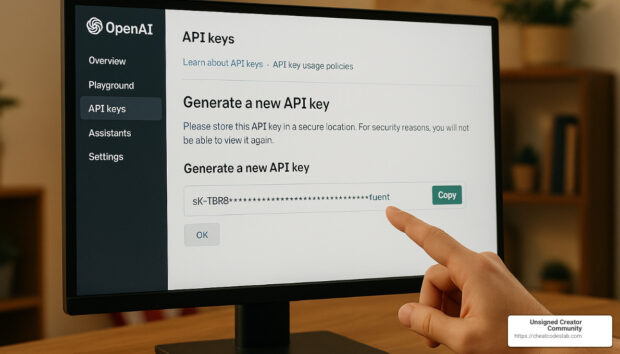
Artificial Intelligence Tools: 10 Best for Marketing Success
Why Artificial Intelligence Tools Are Changing Digital Marketing
Artificial intelligence (AI) has moved from buzzword to business essential, completely reshaping how modern marketers create, distribute, and analyze content. Powered by large language models, image generators, and automation platforms, the latest AI tools help businesses reclaim 7–10 hours every week while increasing output and creativity.
Top AI Tool Categories for Digital Marketing
- Content Creation: ChatGPT, Jasper, Grammarly for fast drafting and editing
- Visual Content: DALL-E, Midjourney, Synthesia for images and videos
- Research & Analysis: Perplexity, NotebookLM for data-driven insights
- Automation: Zapier, Buffer for seamless workflows
- Customer Support: Advanced AI chatbots and meeting assistants
- SEO & Search: AI-powered keyword research and on-page optimization
The impact is tangible: educators, creators, and brands are already reporting dramatic time savings and higher campaign ROI after introducing AI into their daily mix. Synthesia alone supports 140+ languages with 230+ digital avatars—proof that multilingual, video-first content is now within reach for any team.
But with fresh AI platforms appearing almost daily, deciding which ones matter can feel overwhelming. The solution is to prioritize tools that eliminate real pain points—whether that means generating copy in minutes, automating repetitive tasks, or surfacing deeper customer insights.
About the Author: I’m Digital Jeff, a strategist who has spent two decades building brands, pioneering content systems, and generating more than 1 billion social-media views in the past year. By testing hundreds of emerging platforms, I help creators and marketers pick the AI solutions that genuinely move the needle.
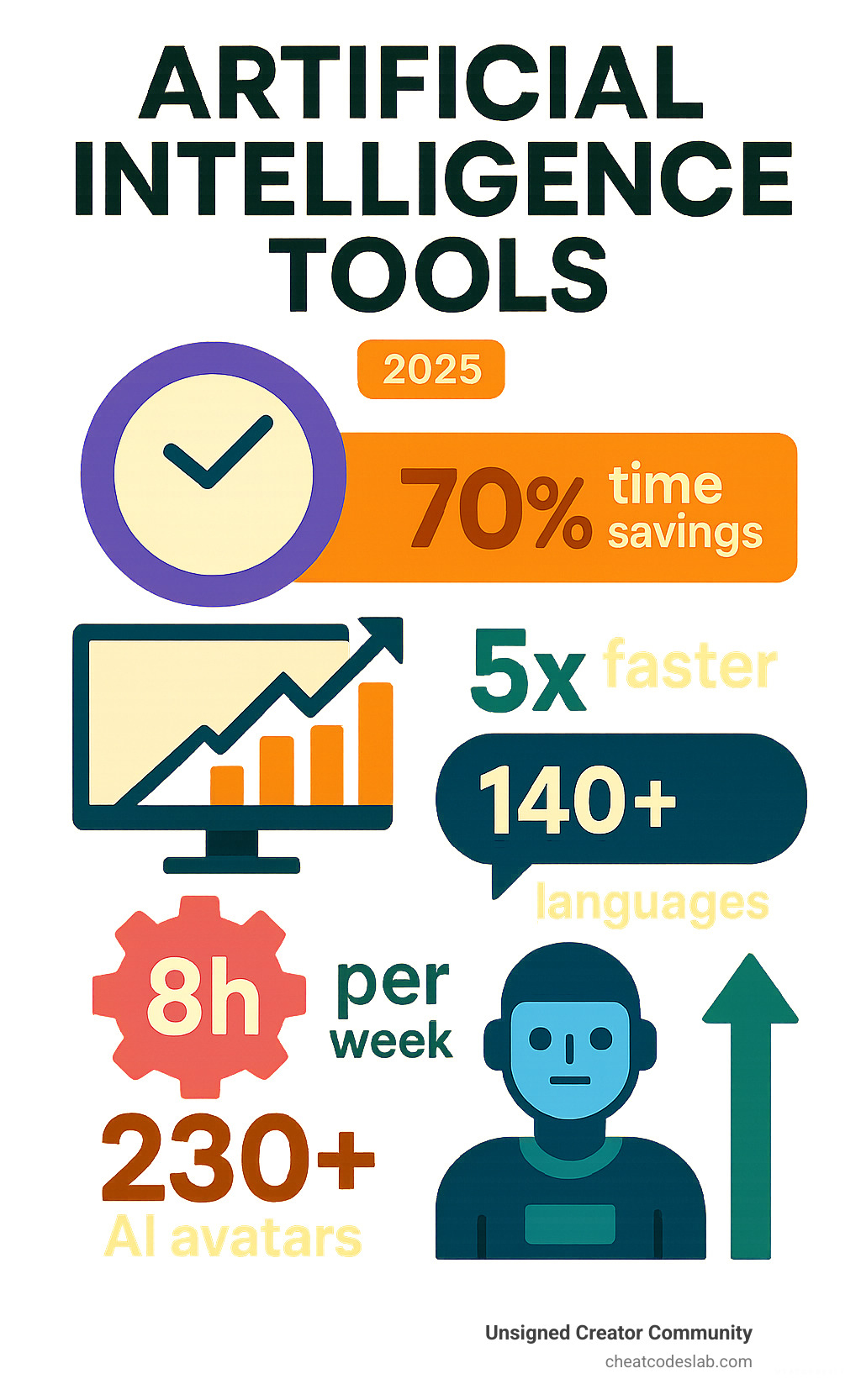
Related content about artificial intelligence tools:
- AI SEO software
- artificial intelligence and machine learning in digital marketing
- artificial intelligence advertising
10 Essential Artificial Intelligence Tools Every Marketer Needs
After testing over 270 AI productivity apps, we’ve identified the essential categories that deliver the biggest impact for digital marketers. These artificial intelligence tools span content creation, research, visual design, automation, and customer engagement – covering every aspect of modern marketing workflows.
| Tool Category | Primary Goal | Time Savings | Learning Curve |
|---|---|---|---|
| AI Writing & Content | Generate SEO-optimized copy | 8-10 hours/week | Easy |
| Smart Search & Research | Deep insights with citations | 5-7 hours/week | Moderate |
| Visual Creation Suite | Brand imagery & video content | 6-8 hours/week | Easy-Moderate |
| Engagement Optimizers | Automate customer interactions | 4-6 hours/week | Easy |
| Workflow Automation | Streamline repetitive tasks | 10-15 hours/week | Moderate-Hard |
The beauty of modern artificial intelligence tools lies in their ability to handle multiple marketing functions simultaneously. Whether you’re crafting blog posts, designing social media graphics, or analyzing customer data, these tools integrate seamlessly into existing workflows while dramatically reducing manual effort.
AI Writing & Content Generator – cornerstone artificial intelligence tools
AI writing tools have become the backbone of content marketing strategies. These platforms excel at generating SEO-optimized copy, crafting compelling headlines, adapting tone for different audiences, and producing long-form content that resonates with readers.
ChatGPT leads the pack with its conversational interface and ability to handle follow-up questions. The platform supports over 50 languages and can generate everything from product descriptions to blog posts in minutes. What sets it apart is its ability to maintain context throughout lengthy conversations, making it ideal for iterative content development.
Jasper takes a more marketing-focused approach with its Canvas feature for collaborative content creation. The platform includes built-in brand voice controls and specialized templates for social media campaigns, ad copy, and press releases. Teams report creating product descriptions in as little as 24 hours using Jasper’s automated workflows.
Grammarly goes beyond basic grammar checking to offer tone suggestions, clarity improvements, and style recommendations. Its AI-powered writing assistant helps marketers maintain consistency across all content while ensuring professional quality.
The key to maximizing these tools is understanding their strengths. ChatGPT excels at brainstorming and conversational content, Jasper dominates in marketing-specific templates, and Grammarly ensures polish and professionalism. More info about AI SEO Content Generator
Smart Search & Research Assistants powered by artificial intelligence tools
Research has traditionally been one of the most time-consuming aspects of content marketing. Modern AI research assistants are changing that by providing deep insights with proper citations, grounding answers in verified sources, and helping marketers avoid the hallucination problems that plague some AI tools.
Perplexity stands out as an AI search engine that combines the conversational interface of ChatGPT with real-time web results. Unlike traditional chatbots, Perplexity cites its sources and provides links to original content, making it invaluable for fact-checking and research verification.
NotebookLM from Google offers a unique approach to research by allowing users to upload documents and create AI-powered summaries. The free tier provides up to 100 notebooks with 50 sources each, making it perfect for organizing research across multiple projects. Its ability to generate audio summaries adds another dimension to content consumption.
Consensus focuses specifically on scientific research, helping marketers find peer-reviewed studies to support their content claims. While it has limited scope compared to general search engines, its accuracy for research-backed content is exceptional.
The research landscape is evolving rapidly, with AI detection becoming increasingly important. However, studies show that AI detectors often produce false positives and negatives, particularly struggling with non-native English writing. This highlights the importance of using multiple verification methods when conducting research. Scientific research on AI detection accuracy
Visual Creation Suite: images & video via artificial intelligence tools
Visual content drives engagement, but creating professional-quality images and videos traditionally required significant time and expertise. Artificial intelligence tools have democratized visual creation, enabling marketers to produce stunning brand imagery, ad creatives, and video content without extensive design skills.
DALL-E 3 and Midjourney lead the image generation space, though their approaches differ significantly. DALL-E 3 integrates seamlessly with ChatGPT, allowing for conversational image creation and iterative refinements. Midjourney, while no longer offering a free tier, produces exceptionally artistic and detailed images that often require minimal editing.
For video content, Synthesia has revolutionized the industry by supporting over 230 digital avatars and 140+ languages. This makes it possible for small teams to create professional multilingual marketing videos without cameras, studios, or actors. The platform excels at producing explainer videos, product demos, and training content.
Runway offers a different approach with its focus on video editing and generation. The platform combines traditional video editing tools with AI-powered features like background removal, object tracking, and style transfer. This makes it ideal for creating short-form content for social media platforms.
The visual creation landscape continues to evolve rapidly. Google’s recent introduction of Imagen 4 and Veo 3 demonstrates the ongoing innovation in text-to-image and text-to-video generation. These tools are becoming increasingly sophisticated at understanding context and producing brand-consistent visuals. More info about AI-Driven Content Creation

Engagement Optimizers: chatbots, email & social automation
Customer engagement has become increasingly complex as audiences expect personalized, immediate responses across multiple channels. Artificial intelligence tools excel at automating these interactions while maintaining the personal touch that builds relationships.
AI chatbots have evolved far beyond simple FAQ responses. Modern platforms like Tidio’s Lyro AI and Gorgias AI can handle complex customer service scenarios, process orders, and even upsell products. These tools learn from each interaction, continuously improving their responses and understanding of customer needs.
Email automation has reached new heights with AI-powered personalization. Tools like Shortwave and Gemini for Gmail can draft responses, organize inboxes, and even schedule follow-ups based on email content analysis. The time savings are substantial – office workers typically spend about one month per year managing work email, and AI tools can reduce this significantly.
Social media automation requires a delicate balance between efficiency and authenticity. Platforms like Buffer and FeedHive use AI to optimize posting times, suggest content improvements, and analyze engagement patterns. The key is maintaining genuine interaction while automating the repetitive aspects of social media management.
The most successful engagement strategies combine AI automation with human oversight. While AI can handle routine inquiries and basic personalization, human intervention remains crucial for complex issues and relationship building. More info about AI Tools for Email Marketing
Workflow & Data Automation with artificial intelligence tools
The true power of artificial intelligence tools emerges when they work together to automate entire workflows. Modern automation platforms can route tasks, sync CRM data, create dashboards, and trigger actions based on complex conditions – all without requiring extensive coding knowledge.
Zapier leads the automation space with its vast library of app integrations and AI-powered Zapier Agents. These agents function like mini-teammates, capable of handling multi-step workflows and making decisions based on data analysis. The platform’s strength lies in its ability to connect disparate tools and create seamless data flows.
For project management, tools like Asana have integrated AI features that can set smart goals, identify project risks, and suggest resource allocation. These capabilities help marketing teams stay organized and proactive rather than reactive.
CRM automation has become increasingly sophisticated, with platforms offering predictive analytics, lead scoring, and automated follow-up sequences. The integration of AI into customer relationship management helps marketers identify opportunities and nurture leads more effectively.
The key to successful workflow automation is starting small and building complexity gradually. Begin with simple automations like lead capture or social media posting, then expand to more complex scenarios as your team becomes comfortable with the technology. More info about AI Tools for CRM
Integrate, Evaluate, and Scale Your AI Stack
Successfully implementing artificial intelligence tools requires more than just selecting the right platforms. Organizations must consider privacy safeguards, ethical use guidelines, cost-benefit analysis, KPI tracking, team training, and strategic rollout plans.
Privacy and security should be top priorities when evaluating AI tools. Enterprise-grade platforms typically offer robust data protection, compliance frameworks, and transparent data usage policies. Always review how tools handle your data, where it’s stored, and whether it’s used for training purposes.
Ethical AI use is becoming increasingly important as these tools become more powerful. Establish clear guidelines for AI-generated content, ensure transparency when using AI for customer interactions, and maintain human oversight for critical decisions. The goal is to augment human capabilities, not replace human judgment.
The free versus paid decision varies by tool and use case. Many platforms offer generous free tiers that work well for small teams or initial testing. However, paid versions typically open up advanced features, higher usage limits, and better integrations that become essential as usage scales.
KPI tracking helps measure the actual impact of AI implementation. Focus on metrics like time savings, content output, engagement rates, and conversion improvements. NotebookLM’s free tier provides up to 100 notebooks with daily limits on queries, making it easy to track research productivity improvements.
Team training is crucial for successful adoption. Most AI tools have intuitive interfaces, but maximizing their potential requires understanding best practices, prompt engineering, and integration workflows. Invest in proper training to ensure your team can leverage these tools effectively.
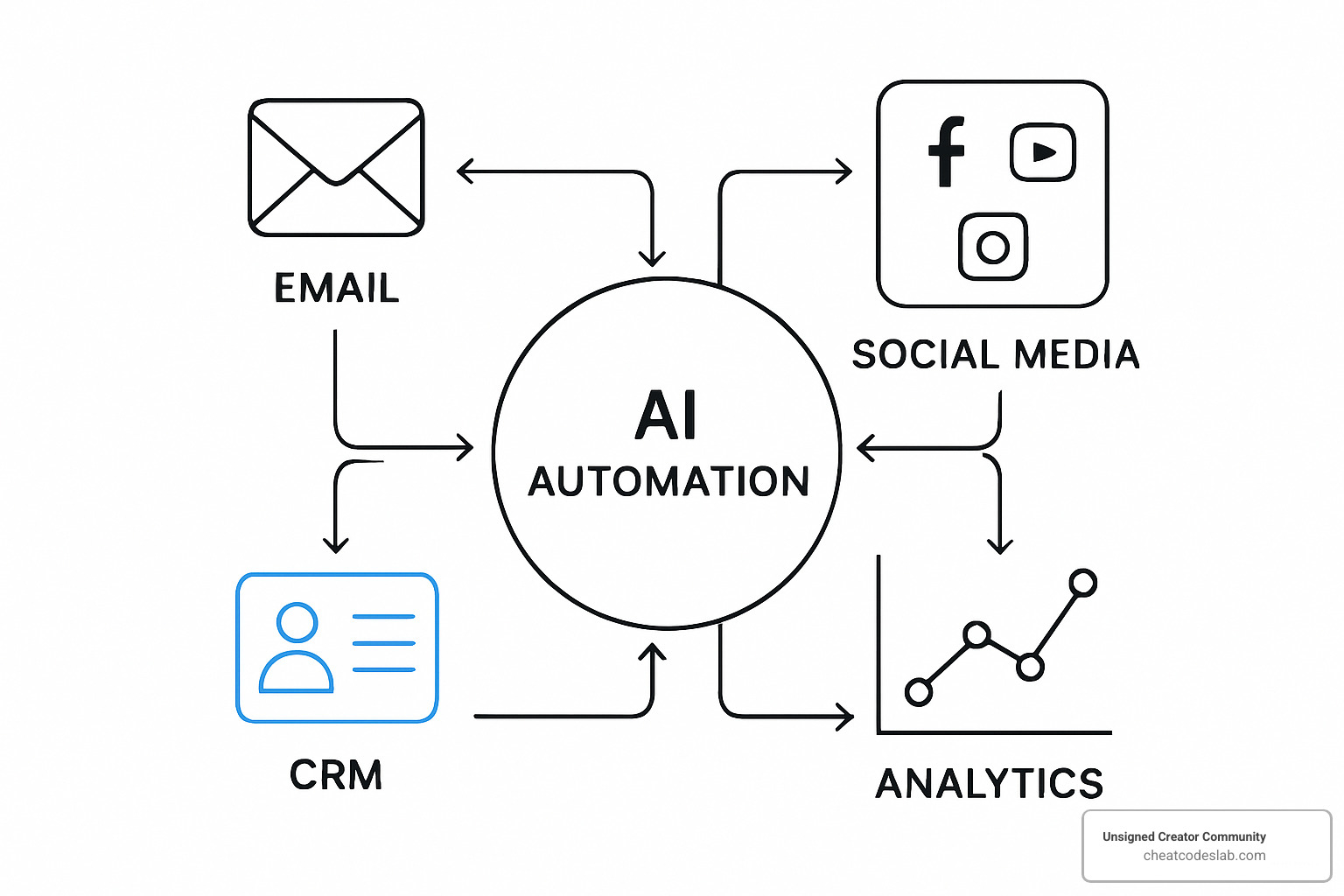
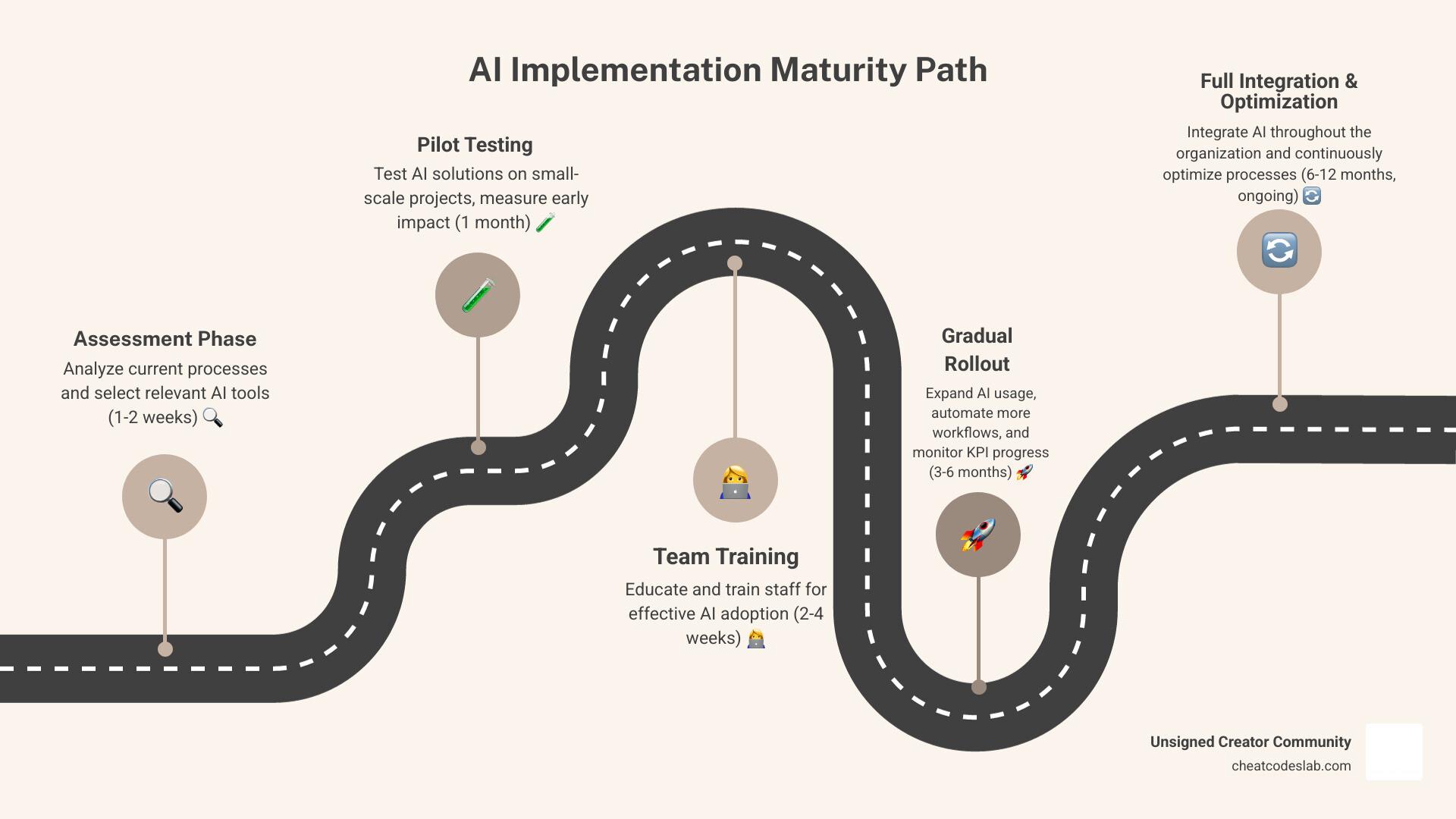
Final Thoughts & Next Steps
The artificial intelligence tools landscape continues to evolve at breakneck speed, with new capabilities and platforms emerging regularly. The key to success lies not in adopting every new tool, but in strategically selecting platforms that solve real problems and integrate well with existing workflows.
Maintain a human-in-the-loop approach where AI handles routine tasks while humans focus on strategy, creativity, and relationship building. This combination leverages the strengths of both artificial and human intelligence while mitigating the weaknesses of each.
Regular accuracy checks and continuous testing ensure that AI outputs meet quality standards and align with brand guidelines. Establish review processes for AI-generated content and maintain feedback loops to improve performance over time.
The future of digital marketing belongs to teams that can effectively combine human creativity with AI efficiency. By starting with the essential tools outlined in this guide and gradually expanding your AI stack, you’ll be well-positioned to compete in an increasingly automated marketing landscape.
The goal isn’t to replace human marketers but to amplify their capabilities. Artificial intelligence tools handle the repetitive, time-consuming tasks so marketing professionals can focus on strategy, innovation, and building meaningful connections with customers.
Ready to explore more AI solutions? More info about AI Tools Online Free










